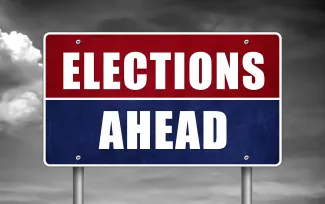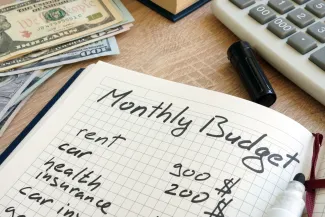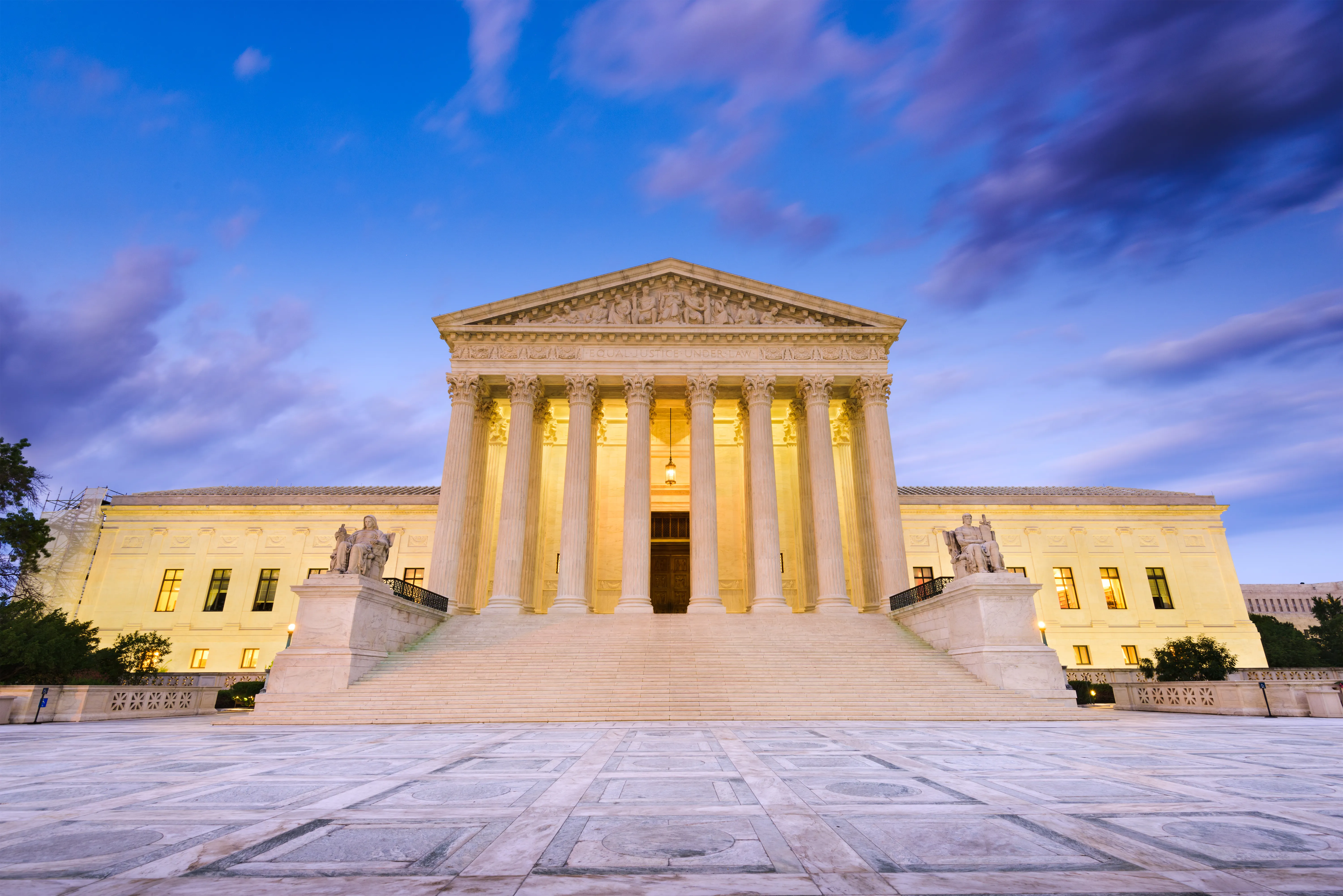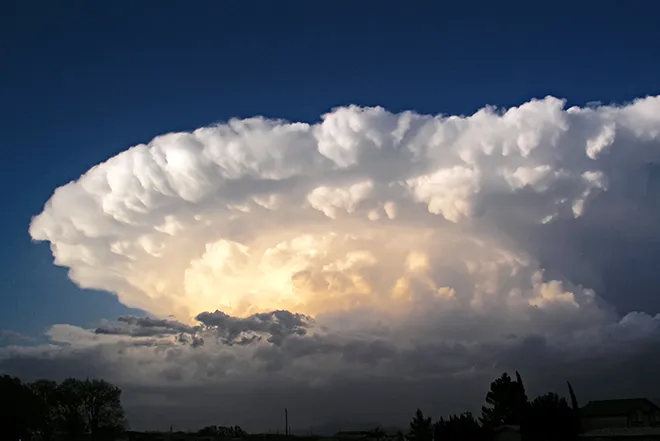
Bipartisan property tax reform passed by Colorado lawmakers
© iStock - Ligorko
(Colorado Newsline) A little over 56 hours after state lawmakers made it public for the first time, a sweeping overhaul of Colorado’s property tax code was given final approval by the General Assembly on Wednesday, signaling the end of the 2024 legislative session and potentially shaping the financial future of school districts and local governments across the state for decades to come.
Leaders in both parties hope the legislation, Senate Bill 24-233, offers a “permanent solution” after years of patchwork relief measures and debate at the Capitol over property tax reform. It would reduce a typical homeowner’s annual property tax obligation by a few hundred dollars, and create a new formula to prioritize school funding over revenues for all other local government entities, which stand to lose out on hundreds of millions of dollars each year as the nation’s third-lowest effective property tax rates are lowered once again.

© iStock - nick1803
That is, unless voters in November approve a ballot measure to slash them even further. A proposal backed by two conservative groups, Advance Colorado and Colorado Concern, would put a strict cap on property tax growth and blow an estimated $3 billion annual hole in school and local government budgets. Though SB-233 earned broad support from Republican legislators, the two groups appear to be moving forward with their initiative.
The specter of that proposal loomed large over discussions at the Capitol as SB-233 raced through the Legislature in the final three days of the 2024 session. Democrats, who hold large majorities in both the House and Senate, offered only qualified praise for the proposal as liberal policy advocates and representatives of local governments sought to portray it as the lesser of two evils.
“If we lived in a world where it was all policy and no politics, this would probably not be the bill I’d want to bring forward,” said state Representative Chris deGruy Kennedy, a Lakewood Democrat and SB-233 sponsor, during the bill’s fast-tracked hearing before the House Appropriations Committee on Tuesday. “Because of the threat of ballot measures like Initiatives 108 and 50, we have no choice but to contend with this on a statewide basis.”
“You will hear from districts that some of these cuts are going to be challenging,” Scott Wasserman, president of the liberal Bell Policy Center, told lawmakers during the same hearing. “(But) we certainly know that the ballot measures that are being recklessly irresponsible are going to result in a massive fiscal disaster that will impact the very communities that we’re talking about.”
Once signed into law by Democratic Governor Jared Polis, SB-233 will provide $1.3 billion in short-term relief for homeowners by cutting residential assessment rates for the current property tax year, the second in the two-year assessment cycle. Beginning with the new cycle in 2025, it would make a series of long-term structural reforms to the property tax code, including a decoupling of assessment rates for school districts and assessment rates for all other taxing districts, which include city and county governments, fire districts, water districts and more.

Under this new two-tier system, school districts would benefit from a higher, flat 7.15 percent assessment rate. For all other local government entities, the residential assessment rates would be set at 6.95 percent, and revenues would be subject to an annual 5.5 percent growth cap. Additionally, for the latter category, the bill aims to maximize relief for lower- and middle-class homeowners by exempting 10 percent of the value of any homes under $700,000 from taxation, gradually reducing that percentage for higher-value homes.
SB-233 and the short-term tax relief previously passed by the Legislature will have served to roughly halve the increase in a typical homeowner’s property tax obligation during the current assessment cycle. If the current plateau in Colorado home prices continues, as many analysts predict amid high interest rates, property taxes would remain flat or nearly flat in 2025.
The result is that local governments will have missed out on the full boost to their coffers they would have otherwise received from several years of gains in Colorado's red-hot real estate market. Brad White, chief of the Grand Fire Protection District in Granby and vice president of the Colorado State Fire Chiefs, told lawmakers in a Senate committee hearing Monday that the costs to local districts of that missing revenue are real — even if they're not palpable yet.
"Local government typically uses strong economic cycles to set aside reserves for future capital needs. For fire departments, those investments include replacement of aging fire engines and trucks, replacement of protective equipment for our firefighters, and stations to serve as new development and maintain insurance ratings," White said. "Our recent years of temporary tax relief have kept many of our members from setting aside the funding to get these needs met, as well as set aside funding to get us through the next recession."
"The long-term effects of this bill will create a situation where the state will need to assist water and wastewater districts, fire and emergency services and health care districts which make up Colorado's critical infrastructure, to ensure the sustainability of our fire and emergency services," he added. "It creates a system where local governments are unable to save for our capital needs, but will have to work through bonds and lease purchases, costing additional money to local taxpayers."
Gallagher vacuum
In addition to cutting residential assessment rates, SB-233 would also gradually reduce the assessment rate for commercial property from 27.9 percent this year to 25 percent by 2027. That was a priority for Colorado Concern, Republican state Senator Barbara Kirkmeyer of Weld County said this week, even though the group didn't sign on to the final deal.
As SB-233 sped towards passage, lawmakers in both parties acknowledged that the road to this year's high-stakes property tax showdown began six years ago with pressure from business groups — including Colorado Concern — to repeal the Gallagher Amendment, a 1982 constitutional measure that kept residential assessment rates low while raising rates accordingly for non-residential property. With support from a broad coalition of interest groups, a measure repealing the Gallagher Amendment was approved by voters in 2020.

Without Gallagher in place to blunt the impact of an unusually sharp increase in Colorado home values between the 2020 and 2022 assessment cycles, property tax hikes in many of Colorado's most populous counties averaged 30 percent to 40 percent in 2023, sending lawmakers scrambling to provide relief. Democrats referred to the 2023 ballot a proposal to pay for property tax relief using excess revenue that would otherwise be refunded to Coloradans under the Taxpayer’s Bill of Rights, but voters rejected it. During a special legislative session called by Polis in December, lawmakers then passed a scaled-down package, including Senate Bill 23B-1, of roughly $430 million in temporary relief.
Roughly two-thirds of Coloradans live in owner-occupied homes, while the other third are renters, according to census data. The median home value in the Denver metro area has more than doubled over the last decade, from $276,800 in 2015 to $596,800 today. In 2021, Colorado's effective property tax rate of 0.55 percent was the third-lowest rate in the country, according to an analysis by the conservative-leaning Tax Foundation.
A homeowner who took out a standard mortgage to buy a median-priced home in the Denver metro area 10 years ago has seen their monthly housing payment rise by about 15 percent over that decade. The median renter in the metro area, meanwhile, has seen their rent increased by 75 percent over roughly the same period, from a $998 monthly payment in 2013 to $1,749 in 2022, census data shows.
State Representative Leslie Herod, a Denver Democrat, asked in Tuesday's committee hearing how the bill would impact Coloradans who rent their homes. Though a task force convened last year to study property tax reform did discuss a tax credit for renters, no such proposal was included in SB-233.
"Unfortunately, in this bill, I don't feel that I can say there is a direct benefit for renters, save for the idea that renters also benefit from local community services," Wasserman said.
"My sincere hope ... is that the property tax relief that we're seeing here will be passed along to renters," he added. "I think everyone has a right to be skeptical as to whether or not that will occur."
Ballot showdown
In the end, despite the vocal reluctance on both sides, SB-233 was passed with overwhelming support in both chambers, with just six Republicans in the House and two in the Senate voting against the bill.
"Could we have gone farther? Probably, but not without seriously crippling the state's budget," Kirkmeyer said from the Senate floor just prior to the bill's final re-passage by the upper chamber, concurring with a series of amendments adopted Tuesday and Wednesday in the House.

Though most of those amendments were minor or technical changes, one has major implications for the November ballot: A section inserted at the last minute on Wednesday will prevent SB-233 from taking effect if one of Advance Colorado's initiatives is approved by voters later this year. Sponsors said the clause was necessary to ensure that multiple property tax cuts at once aren't "layered" on top of one another.
"If the good voters of the state of Colorado find a better solution that they think is going to work for them, we have to be responsive to that," said state Representative Lisa Frizell, a Castle Rock Republican and a bill sponsor. "But right now, today, this is solid policy."
Advance Colorado — a so-called "dark money" nonprofit that does not disclose its donors — made its opposition to SB-233 clear on Wednesday. Alongside other conservative groups, including the Common Sense Institute, Advance Colorado president Michael Fields sought to portray any measure that allows property taxes to rise in future years as a failure.
"What we need is a simple solution to cut and cap property taxes," Fields said in a video posted to X.
In a statement on the bill's passage, Wasserman applauded a proposal that he said "balances homeowner savings with the vital need to protect K-12 funding and avoid deeper local cuts."
"We look forward to ensuring this bill becomes law and that Coloradans have a full understanding of the disastrous consequences that could come from voting for Initiatives 50 and 108," he said. "Lawmakers chose the hard path and the process worked."
Final passage of SB-233 was among the last official actions taken this year by lawmakers before adjourning the 2024 legislative session just after 8 p.m. Ultimately, with property tax burdens and local government finances hanging in the balance, the fate of what lawmakers in both parties say was a hard-fought compromise will be up to Colorado voters.
"The good citizens of this state said — we heard it loud and clear — that they wanted us to work together ... to solve this problem," said Frizell. "This is a tough nut to crack. It's really, really tough. And we have done the best that we possibly could, with all the analysis and all the legal minds and stakeholding, over and over and over again. And this is what we bring to you."
Colorado Newsline is part of States Newsroom, a nonprofit news network supported by grants and a coalition of donors as a 501c(3) public charity. Colorado Newsline maintains editorial independence. Contact Editor Quentin Young for questions: info@coloradonewsline.com. Follow Colorado Newsline on Facebook and Twitter.
















